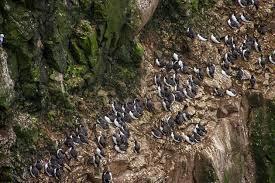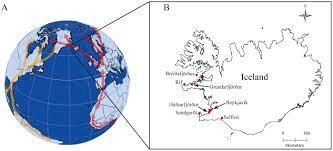 According to a May 6th ProMED report, citing the Reykjavik Grapevine, veterinarians in that nation have diagnosed H5N1 in seven wild bird species in 16 locations. Affected birds include a barnacle goose (Branta leucopsis), with this species having experienced high mortality in Scotland earlier in 2022, a white-tailed sea eagle (Haliaeetus albicilla), a raven (Corvus corax), susceptible in common with other corvids in many nations in the E.U., Asia and North America, black-backed gulls (Larus marinus), as affected in the Province of Newfoundland and Labrador, Canada and both white-fronted geese (Anser albifrons) and greylag geese (Anser anser). The distribution of cases and the variety of species affected attests to the widespread distribution of H5N1 virus.
According to a May 6th ProMED report, citing the Reykjavik Grapevine, veterinarians in that nation have diagnosed H5N1 in seven wild bird species in 16 locations. Affected birds include a barnacle goose (Branta leucopsis), with this species having experienced high mortality in Scotland earlier in 2022, a white-tailed sea eagle (Haliaeetus albicilla), a raven (Corvus corax), susceptible in common with other corvids in many nations in the E.U., Asia and North America, black-backed gulls (Larus marinus), as affected in the Province of Newfoundland and Labrador, Canada and both white-fronted geese (Anser albifrons) and greylag geese (Anser anser). The distribution of cases and the variety of species affected attests to the widespread distribution of H5N1 virus.

Preventive measures have been taken at the Reykjavik Park and Zoo and poultry keepers have been warned to protect flocks. Iceland is a resting point in westward migration from Northern Europe through the Orkneys, the Faroe Islands and onto Greenland terminating in the Maritime Provinces of Canada.